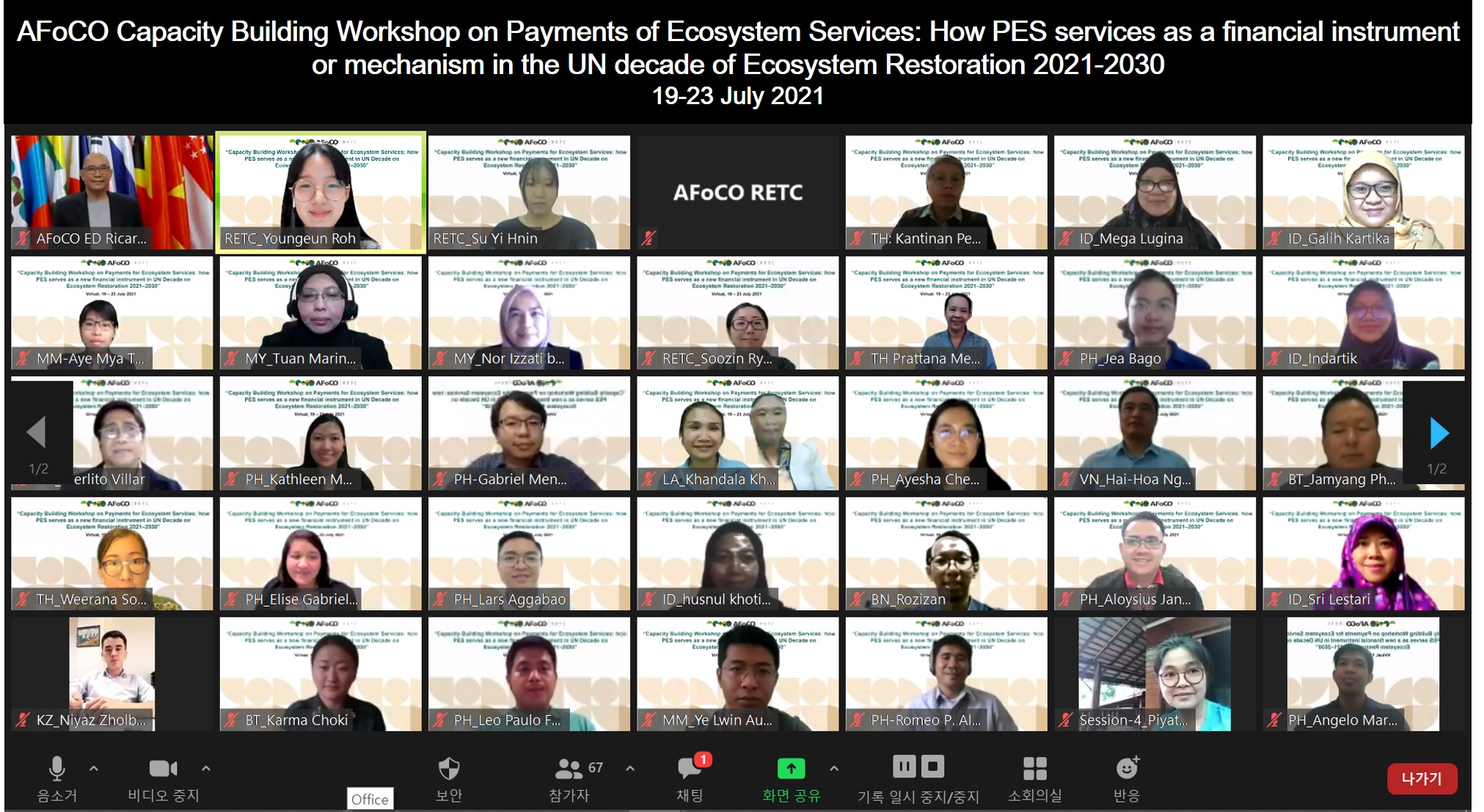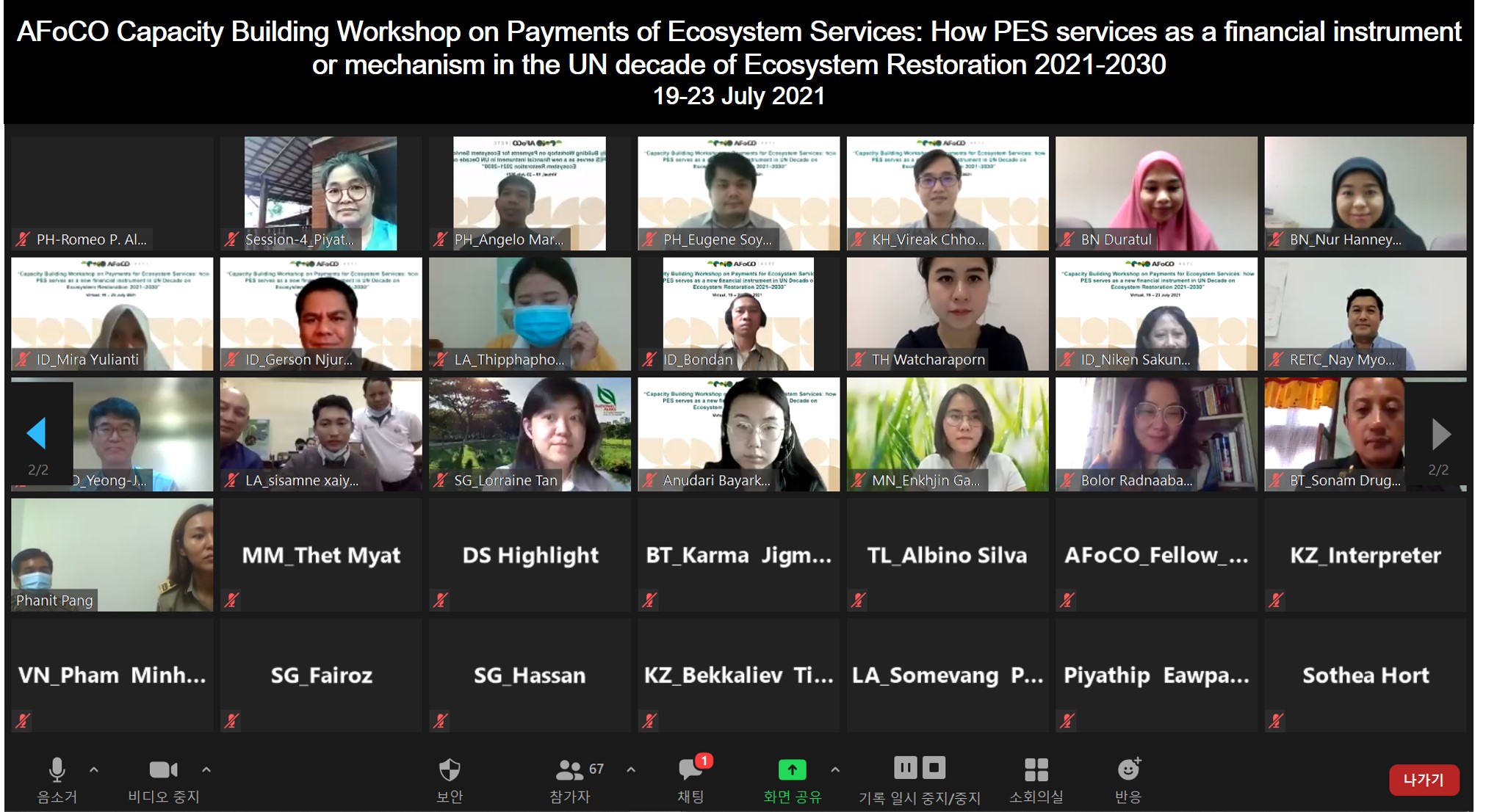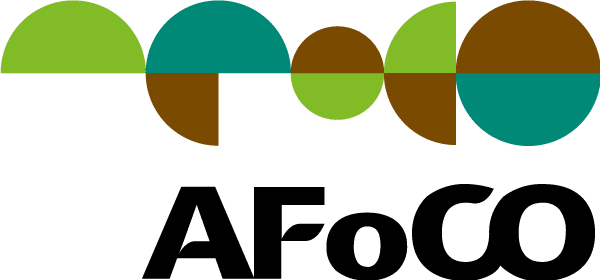From 19 to 23 July, AFoCO RETC is organizing the capacity building workshop on “Payments for Ecosystem Services: How PES services as a financial instrument or mechanism in the UN Decade on Ecosystem Restoration 2021-2030.” More than 80 government officials and experts from all 15 AFoCO member countries, the Center for International Forestry Research (CIFOR), and the National Institute of Forest Science (NIFoS) of the Republic of Korea are participating in this workshop to share their knowledge and brainstorm over PES initiatives at the regional level.
Payments for Ecosystem Services (PES) is a type of market-based incentive system offered to farmers or landowners in exchange for managing their land to provide ecological services to society or end-users. Under the “UN Decade on Ecosystem Restoration 2021-2030” declared by the UN General Assembly in 2019, PES has been recognized as a new financial instrument and is considered and implemented as part of nature-based solutions under the Sendai Resilience Framework. PES is contributing to disaster risk reduction and climate change adaptation with socio-economic benefits in an integrated manner. Likewise, PES has been emphasized as an innovative financing modality for forest conservation, restoration, and sustainable use to address deforestation. This call to action recognizes the need to speed up the restoration of damaged ecosystems to combat global warming, improve food security, provide clean water, and conserve global biodiversity.
At the opening ceremony, AFoCO’s Executive Director, Mr. Ricardo L. Calderon, encouraged participants to take the opportunity to share expertise, experiences, and challenges of PES implementation at the country level in the AFoCO Region. He further stressed that in spite of successful localized PES schemes in member countries, PES is still in its pilot stages as there are many challenges that have yet to be overcome.
“Clearly defined legislations and enabling policies and well-formulated incentive mechanisms for private sector investments would help support stepwise community preparation and capacity development methodologies to manage resources, measurements, and the valuation of natural resources. As a cross-sectoral M&E scheme, transparent management of benefits and community sharing schemes should be put in place,” said Mr. Calderon.
From today, eight lectures will be provided, building upon AFoCO’s first PES discussions at the 2014 ASEAN-ROK Forest Cooperation (AFoCo) International Workshop on PES under the subject of “How PES serves livelihood of the forest community”. CIFOR researchers will share their global and regional analytical views on PES with two lectures on its institutional roles and financial instruments to boost landscape restoration initiatives under climate change and pandemic recovery. PES practices in Viet Nam, Thailand, Bhutan, Indonesia, and the ROK will be shared and discussed in five lectures. During the final session, all member countries will present country action plans on how to address gaps and challenges in implementing PES.
The workshop is expected to be a steppingstone for further assessment and development before planning AFoCO’s PES initiative at the regional level.



